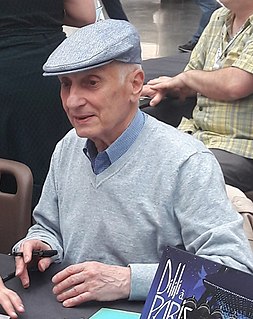A Quote by Ari Aster
With 'Hereditary', I wanted to make a film about what bothers me about life.
Related Quotes
'Hereditary' is unabashedly a horror film, whereas 'It Comes at Night' was a lot of things: it was a thriller; it was a postapocalyptic drama. It was a slow-building, very dark movie about relationships. 'Hereditary' is also about relationships, and I hope it functions as a vivid family drama, but it is also very much a horror film.
I wanted to be a car mechanic and I wanted to race cars and the idea of trying to make something out of my life wasn't really a priority. But the accident allowed me to apply myself at school. I got great grades. Eventually I got very excited about anthropology and about social sciences and psychology, and I was able to push my photography even further and eventually discovered film and film schools.
When industry people see something different they don't know what to do with it, so filmmakers who make films about women, they kind of fall through the cracks. If a woman filmmaker makes film about war, like [Kathryn] Bigelow, they say "Okay, this is a war film, it has ninety percent men in it, we know what to do with it." But then she still gets attacked for not doing it properly. [...] But even though it bothers me I don't want to dwell on the sex and gender thing.
People make films about all kinds of relationships, but they won't do these extremely intense platonic love affairs that happen between young girls. In a way they are more intense than anything else you ever have, and that's what I wanted to make a film about, though it was in the context of a horror film.
Campaigns and elections are not a game. They're not a game. They're about trying to change America. We're the wealthiest country in the history of the world. We should not be having Flint, Michigan, or African-American communities all over this country where schools are failing. Those are the issue we got to pay attention to and not at this as come kind of silly game. And that is the critique that bothers me. That's what bothers me about media coverage.
I was interested in immigration and I wanted to use that in the film, not necessarily to talk about immigrants, although I wanted to do that, but to talk about ourselves through the eyes of an immigrant. The film takes place in the school and it tells us a little bit about who we are and where we're at, but through the eyes of someone who has a different background.




































